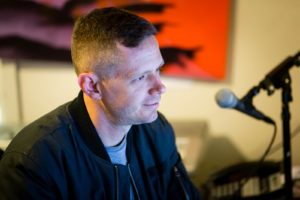How do you adapt an open access studio, which encourages participants to drop-in when they like, to an online model as a result of COVID-19?
That was the question facing Artful Dodgers Studios, a flexible and welcoming studio space where marginalised young people create art and music with the support of experienced artists and musicians.
“It is not an exaggeration to say that the studios are, for many participants, the safest space in their lives. So when the doors to the studios closed in March we immediately encouraged young people to connect with us remotely,” says Angeliki Androutsopoulos, Coordinator at Artful Dodgers Studios.
“We noticed participants were experiencing heightened anxiety and distress levels, so it became more important than ever, to provide activities that inspire hope, which are empowering, relevant, connecting and which offer a comforting rhythm and routine to often chaotic lives.”
The first challenge was to try and address the resource and digital divide. To that end, art supplies were dropped off and equipment such as computers, instruments, microphones were lent out.
Daily Zoom-based activities were then set up. In the Art Club, young people drop-in any time, hang-out, work on their own projects or participate in the daily art challenge. Musicians from the studios regularly drop-in to play music for the group. One-on-one music sessions also remain as popular as ever.
Artful Dodgers Studios is also producing a second series of their podcast Braided, which matches participants with leading audio producers to tell their unique stories. Weekly online podcast workshops support participants to develop their story-telling and technical skills and provide a forum for young people to share their experiences with each other.
Staff at the studios continue to support participants in a range of other ways, from encouraging participants to remain physically active by going on a virtual walk outside together, to facilitating access to Centrelink services and mental health support.
“Using the digital environment, we are trying our best to mirror both the creative possibilities and ethos of our (usually physical) space – choice, creativity, connection and community,” says Angeliki.







